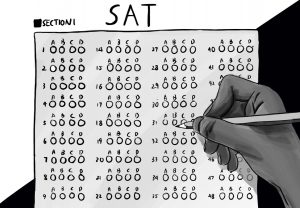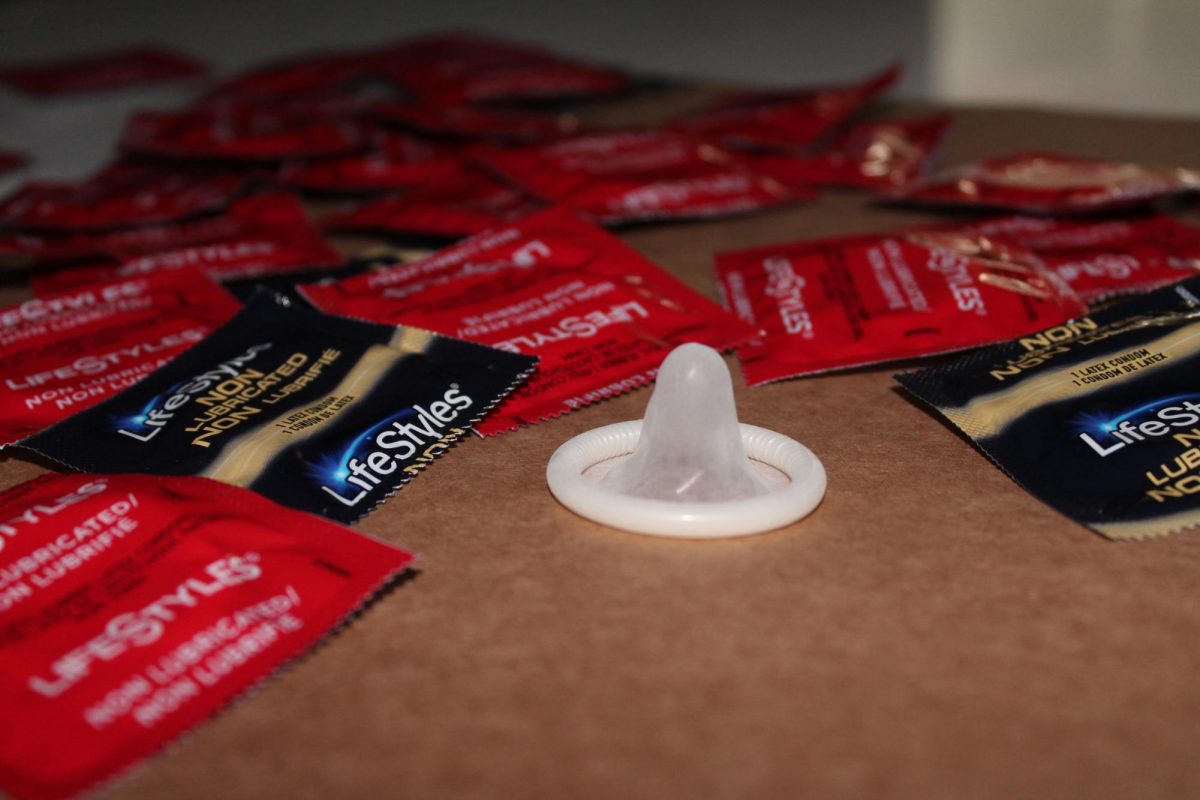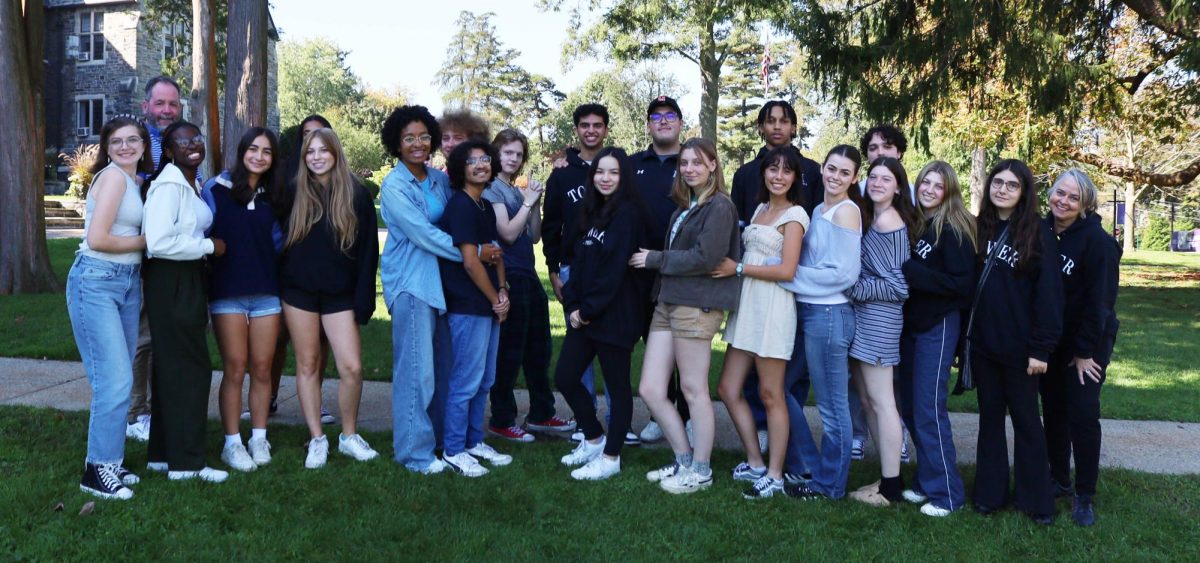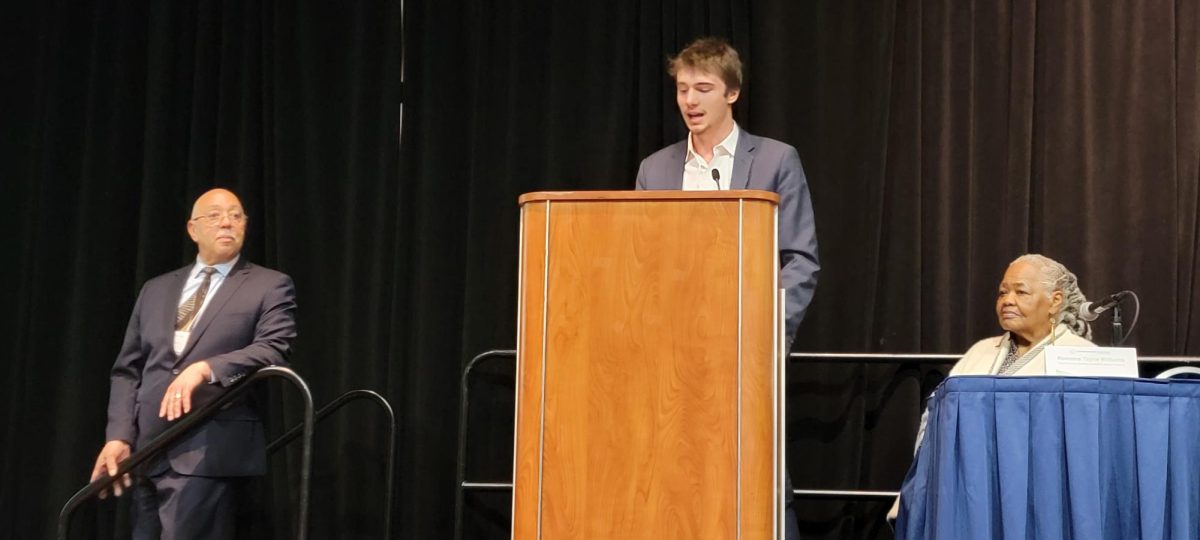When you wake up in the morning, roll over and look at your brightly lit a phone, what do you see?
Do you immediately jump onto TikTok, jumping to your likes and comments, instantly feeling the face-burning shame of not looking like the people on your “for you” page? Or, maybe you scroll through Instagram, watching people’s lives through your screen, envying the vacations and parties they’ve attended?
No matter what social media app you race to check when you open your phone, they all have one thing in common: they make everyone who uses them feel bad about all different aspects of their lives, whether it be money, relationships or bodies.
What about sex? How has social media warped people’s opinions of an act that, way back when, was supposed to ‘mean something’?
An anonymous junior girl spoke about her losing her virginity. She said, “When I lost my virginity, I felt like the boy expected me to act like a porn star; he was pushing all these expectations he’d seen onto me. He was so wrapped up in what he wanted our sex to be that it didn’t feel like he took time to make sure that I was comfortable and okay with everything that was happening.” She continued, “It was supposed to be a special important moment, but instead it was sad, uncomfortable, and disappointing. I ended up feeling super guilty and bad about myself.”
Different apps– Tinder, Grindr, and Snapchat, to name a few– have made sex an incredibly casual and accessible act, eliminating the emotional connection that used to be valued when having sex with someone. Another junior girl spoke on this, saying, “Social media makes sex more about pleasure than about the real content of lovemaking,” She continued, “Social media has made me view sex as a meaningless thing. This makes me want to value it more. It’s an important part of one’s life, given that intimacy is or should be to me viewed as something precious and meaningful with someone you truly care for.” This may be one of the many reasons that teens are having less sex in the younger generations.
None of this is to say that there are no positives of sexual content on social media. According to Modern Intimacy, through social media, we’ve been able to have destigmatized conversations and forums about sex that wouldn’t have been imaginable years ago. Social media helps to educate people on all things sex.
An anonymous senior spoke on this, saying, “There are a lot of thirst trap videos on the internet that are designed to turn people on.” They continued, “I think that seeing these videos have been both helpful and harmful to my relationship because on one hand if something looks ‘hot’ I can try to apply it to my relationship, but on the other hand I feel disappointed when the sex I have isn’t as good as what I’ve seen online.”
An anonymous senior boy also spoke on the positive and negative ways social media has impacted his views on sex. “For the most part, there are two types of content that I see regarding sexuality. The first is sex-positive content that promotes open conversations between sexual partners and the realities of what a serious relationship entails,” he said. He continued, “Though, it’s often overshadowed by the darker side of sexual content on social media platforms. Whether it be comments in a post or the familiar names of Andrew Tate or other influencers who make their name by being negative about sexual relationships. Often, this is either demeaning towards women, uses outdated views on what is socially acceptable for men to engage in during sexual acts, or even discourages the benefits a sexual relationship may have on your life as a young male.”
But, it is argued that the negatives of sexual content in the media highly outweigh the positives. Social media gives sexual predators the ability to hide behind a screen, giving opportunities for unsolicited nude photos and the opportunity for younger children to be exposed to sexual content too early.
Social media has also created a cesspool of insecurity among teenagers. A different anonymous senior boy spoke on this, saying, “Part of why I deleted TikTok a few years ago was because of people like Vinnie Hacker and Noah Beck. Just random hot people that would go viral.” He continued, “The ones I’d compare myself to the most were the guys. They were all very similar: sharp jawline, abs, sometimes tattoos, but always athletic and definitely people who are more masculine. I very rarely saw a lot of queer or somewhat fem representation. It was just super hyper masculine straight sexual representation.” He finished by saying, “All of the ‘choke me daddy’, ‘this is so hot’ comments of people obsessing over stuff that I thought I couldn’t relate to, and it made me compare myself more.”
Social media platforms continue to develop the best algorithms and ways to grab people’s attention and keep us hooked, and media continues to further shape how people see the world. As social media dependencies rage on, these apps continue to affect the social, mental, and physical world around us.





















